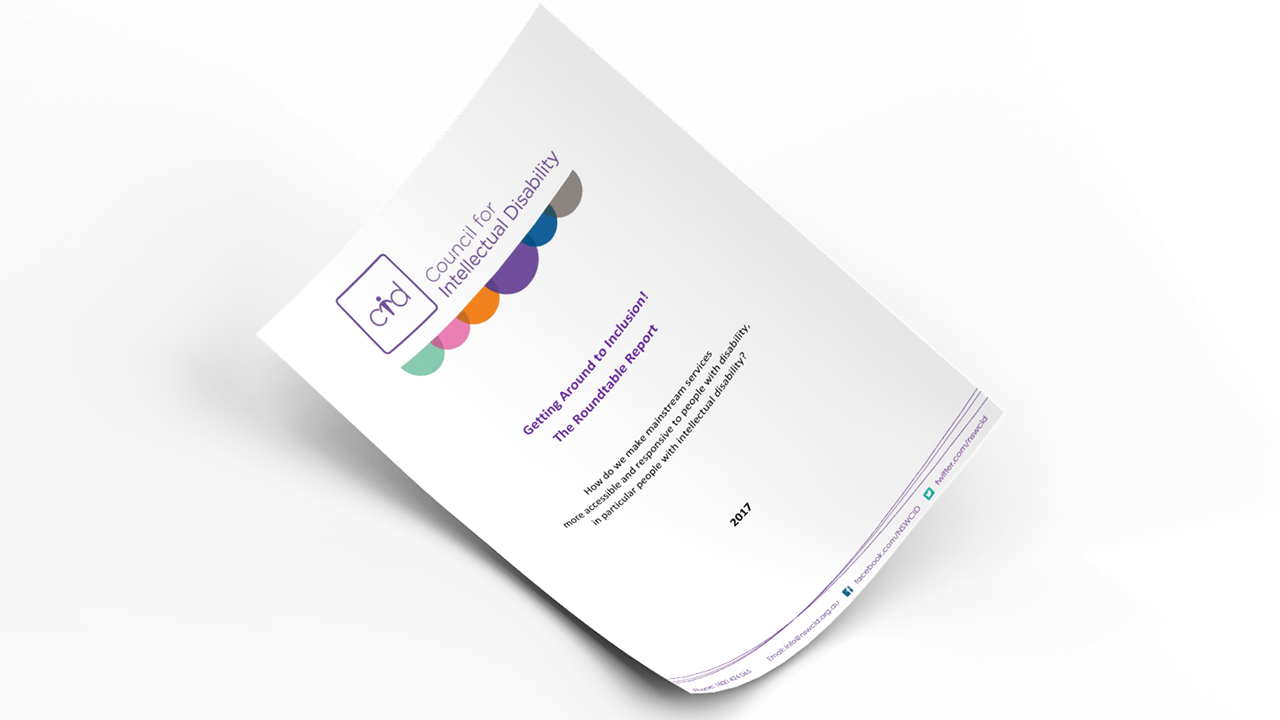
Mainstream accessibility, isn’t it about time?
“I want to be part of the community, not just walk through it!”
Michael Sullivan, Chairperson, CID
All too often, mainstream services – those available to the general population, like health, education and legal services – are not accessible or responsive to the needs of people with intellectual disability.
We see much talk, but little action.
So Council for Intellectual Disabilty (CID) brought together people with expertise and experience in systemic change to help us compile a list of key ‘drivers for inclusion’ for people with intellectual disability.
Participants in this ‘roundtable’ included people who have run government departments and rights protection agencies, researchers, advocates, and people with responsibility for current government initiatives.
After taking time to digest the issues and solutions raised in the discussions, CID has compiled a list of key priorities that need to be addressed for government agencies to move more convincingly towards full inclusion for people with intellectual disability.
View a full summary of the priorities in: Getting Around to Inclusion! The Roundtable Report.
Read some of the key recommendations from the report below.
- To start with, governments must move away from their current siloed approach of assessing individual needs in different departments, without consideration for the big picture. They must instead focus on all of the needs of a person throughout their lifetime, and the associated costs and benefits. Individual people and their needs do not exist in a vacuum.
- Communicate and listen: There must be regular conversations with people with intellectual disability and other representatives of the disability community, at national, state and local levels. This will not only reassure people that their voices are being heard, it will help identify experiences of inclusion and exclusion, and generate strategies for inclusion.
- Governments must continue to fund robust disability advocacy, including advocacy specifically for people with intellectual disability. State-based systemic advocacy (advocacy that is aimed at changing the system, rather than helping an individual) is a key driver of inclusion in government agencies such as health and education. Without funding for systemic advocacy, people with intellectual disability will lose their voice, and the momentum to achieve a fully inclusive and accessible society will stall.
- Discrimination complaints must be used as a tool to improve inclusion. Commonwealth and New South Wales anti-discrimination laws forbid discrimination in provision of services, including government services and education. Providers cannot refuse to provide services because of a person’s disability, or provide them in an unfair way or on less favourable terms than to other people. Complaints processes are seldom used by people with intellectual disability, but offer a golden opportunity to bring about real change.
- The National Disability Insurance Scheme (NDIS) Quality and Safeguarding Framework must be implemented with a strong focus on the interplay between the roles of the NDIS and mainstream agencies. Two of the most pressing issues in this area are addressing the role of health services in restrictive practices, and reducing preventable deaths of people with intellectual disability.
Take Action
A simple action you can take today is to give feedback on the Department of Social Services’ National Disability Strategy by completing The 2016 Progress Report Stakeholder Survey. The survey is largely multiple choice, but there are opportunities to comment in some sections, so you can use the recommendations from our report to make suggestions on reform.
The survey can be completed online by 14 August 2017. Paper copies of the survey can be requested before 4 August, 2017.



 1800 424 065
1800 424 065 














